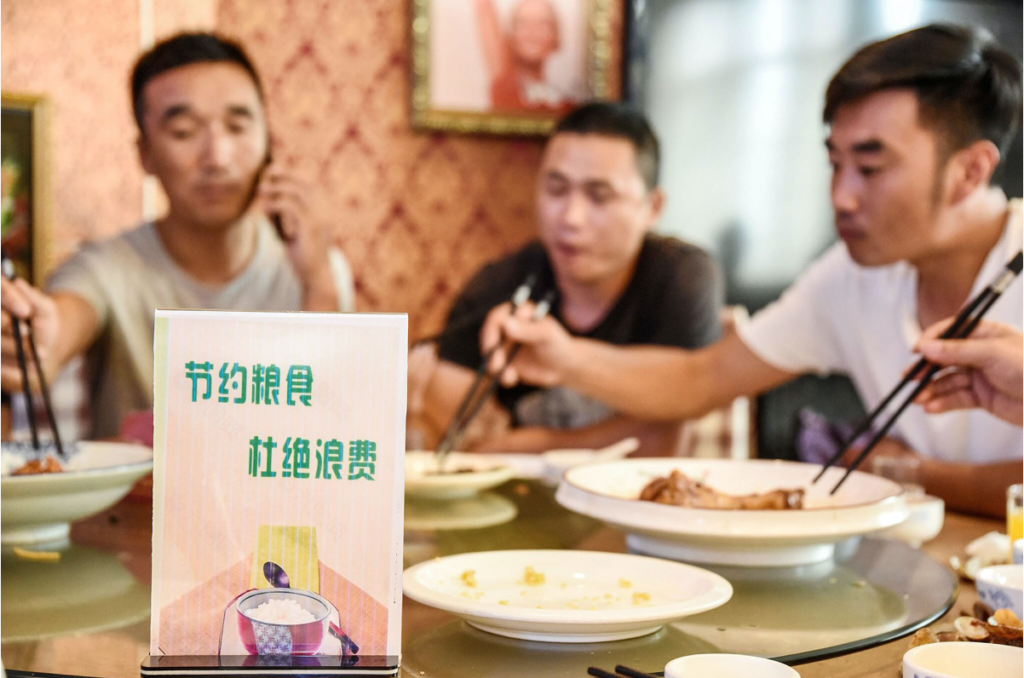20 Great Reasons To Experience Traditional Chinese Food
20 Great Reasons To Experience Traditional Chinese Food
Blog Article
Top 10 Tips On Street Food Security In China
1. Pick vendors that have a long line of tip. Search for vendors with long queues, and high turnover. This is because they're more likely to make use of fresh ingredients.Pro A high turnover rate is a sign of freshness and the popularity of locals.Cons: Standing in lines can take a lot of time.
2. Observe Hygiene PracticesDo not handle food items with hands in your own. Find vendors who wear gloves and keeps their area tidy.Pro: Reduces the chance of contracting foodborne illness.Cons: The high standards of hygiene could make it difficult to choose a suitable option.
3. Avoid Uncooked FoodsTips: Choose freshly cooked or cooked foods such as grilled skewers, cooked dumplings that are fried or steamed buns in order to kill bacteria.Pro: Cooked food will not trigger food poisoning.Cons: You're limited in the choices you can make, as certain raw foods such as sashimi or cold salads could be tempting.
4. Inspect IngredientsTips: Take a look at the appearance and odor of the food. Fresh ingredients should look vibrant and have no unpleasant odor.Pro helps you avoid spoilt or inferior quality ingredients.Cons: It can be hard to gauge freshness when you're new to the market.
5. Buy Boil or Bottled drinksTo avoid drinking unsafe tapwater opt for bottled water, tea made from boiled water or canned drinks.Pro: It protects you from waterborne illnesses.Con: The small variety of beverages on offer particularly from street stalls.
6. Start SmallTip: Try a tiny portion of food you've never tried before to observe how your body reacts.Benefits: Reduces risk of serious digestive problems.Cons: The food might not satisfy all your cravings Even if it's tasty and safe.
7. Avoid Ice in DrinksTips: Avoid the ice cubes because they could be made of tap water that has not been treated.Pro: Guards against contamination of water.Cons: Drinks are less refreshing in hot weather.
8. Shop for fresh cooked food itemsTips - Select food that is prepared in front of you.Pro: Lowers the risk of contamination from long-term exposure.Con: Certain pre-prepared street food items might be irresistible or irresistible.
9. Hand Sanitizers to CarryBefore eating, make use of hand sanitizers and moist wipes to wash your hands. This is crucial in the absence of facilities to wash your hands.Pro: Less possibility of transferring germs from your hands to your food.Cons: It isn't convenient to have extra items.
10. You must trust your instinctsTip: If something looks or smells bad avoid eating it, no matter how tempting it might appear.Pro: It allows you avoid eating foods which can cause illness.Pros: Be cautious as it could lead you to avoid authentic adventures.
Street Food in China: Pros and ConsStreet food is affordable and tasty.It's convenient: There are vendors everywhere, making it simple to grab fast food or snacks.Enjoy the culture of local cuisine at street stalls.Variety is the key: Choose from Jianbing crepes (savory) or Chuan'r (grilled sticks).Cons of Street Food In ChinaHygiene issues: Foodborne illnesses can be a major issue, especially when eating at places that are not reputable.Allergy Risks: Ingredients may not be identified, creating challenges for those with allergies.Language barriers: Getting across ingredients or preparation methods isn't always easy.Overeating Temptation: The wide of options can cause you to eat too much which can upset your stomach.By following these safety guidelines, you can confidently take advantage of China's lively street food culture while minimizing health risks. View the recommended journey through China food culture for more recommendations including Chinese food culture guide, explore China food scene, the ultimate guide to Chinese cuisine, discover the tastes of China cities, journey through China food culture, savor China regional food specialties, taste your way through China, the best food destinations in China, top Chinese food experiences, culinary wonders of China and more.
Top 10 Tips On Ritual Observances At Famous Temples In China
1. Tip: Each temple has their own rules and customs. Be sure to follow them even when you are participating in sacred rituals or entering holy places.Pro Represents respect for the temple's local customs and sacred space.Cons: It may be difficult to learn the rules completely, especially when you're in a religious institution with complex rituals.
2. Be Respectful and QuietMaintain a calm and respectful manner and keep your voice quiet when you perform ceremonies or within the temple. Do not talk loudly or laugh.Pro: Brings peace to worshippers and demonstrates reverence.Cons: The silence may be uncomfortable if you're not familiar with the culture or the surroundings.
3. Dress sensuallyAvoid revealing clothing. Wear long skirts, pants or dresses to show respect. Certain temples might offer scarves or shawls to cover arms that are not covered.Pro: Shows respect for the sacred area and the worshippers who visit it.Con: Visits during hot days could require additional planning and/or clothing.
4. Observe the Offerings RitualYou can follow locals' lead if you are planning to make offerings of incense or fruits, as well as other items.Pro: This will show that you respect the customs and traditions.Cons: You may not feel comfortable taking part when you aren't sure about the ritual.
5. Don't interrupt prayer or meditationDo not interrupt worshipers when they're meditating or praying. While others are engaged in spiritual practices, refrain from engaging in conversations or taking photos.Pro: Represents cultural respect and creates a peaceful, reverent environment.Con: You might be tempted to record moments for your own memory however, it could seem like a nuisance.
6. Lighting of IncenseTip: When it comes to Chinese temples, lighting incense is a significant ritual. Incense is lit to show your reverence for gods. While holding the incense with your hands, make a bow at the time you are offering it.Pro: Displays that you are active in temple worship and honour the tradition.Cons: Incense is a foreign concept to many tourists. Improper handling may be a sign of disrespect.
7. Do not touch sacred statues or objectsTip: Do not touch sacred statues or temple items unless you are specifically requested to.Pro: Protects the sacredness of the temple as well as the reverence of the space.Con: May lead to confusion if you're not aware of the boundaries of temples.
8. Beware of Temple HierarchyTips. In certain temples, you may find different levels or sacredness. Be cautious when you enter the temple. Don't walk front of sacred altars or statues.Pro: You should maintain the decorum of the temple, and be respectful of the temple's decor. This shows that you are aware of the tradition of the temple.Cons: The hierarchy is not always clear and requires extra effort to determine what's acceptable.
9. Keep Offerings HumbleBe modest with your gift giving and in keeping with the local culture. The extravagant or expensive gifts could be seen as inappropriate.Pro: Shows an attitude of humility and adherence to local customs.Con: You might be uncertain about what product is appropriate, without guidance from your local area.
10. Participate in Temple Events, if InvtedTip: Some temples have special days, services or other ceremonies. Please be respectful and participate If you're invited.Pros: It lets you get involved in the local culture, and make you feel more involved in the temple experience.Con: Taking part in rituals that you are not familiar with can make you feel uncomfortable and awkward if the protocol is not strictly adhered to.
The benefits of keeping track of ritual practices in TemplesCultural Immersion - Taking part in ceremonies can help you understand more about the traditions and culture in China.Respectful Interaction: By being mindful and engaging in a respectful manner and courtesy, you will build positive relationships with locals and temple personnel.Personal Growth: Participating in cultural or spiritual practices can be an enriching and meaningful experience.Memorable Experience: Being a part of the temple's rituals will leave unforgettable memories of your trip.Cons of Observing the Ritual Practices of TemplesRituals are often unfamiliar and uneasy for new visitors and can cause confusion or even mistakes.Cultural Mistakes: When made incorrectly, this can lead to offence or misunderstandings.You may have difficulty understanding ritual meaning or instructions because of language differences.Physical Discomfort Some rituals can be physically difficult, like standing or bowing.Utilize these suggestions to ensure a meaningful, respectful, and enjoyable visit to China's most renowned temples. Take part in the spiritual rituals of the locals without being offended. Take a look at the recommended Chinese cuisine you need to try for more info including China culinary heritage, explore the riChness of Chinese food, must-try foods in China, authentic Chinese culinary adventures, Chinese food you must try, journey through China food culture, authentic tastes of China, China culinary hotspots, the flavors of Chinese cuisine, China famous food destinations and more.